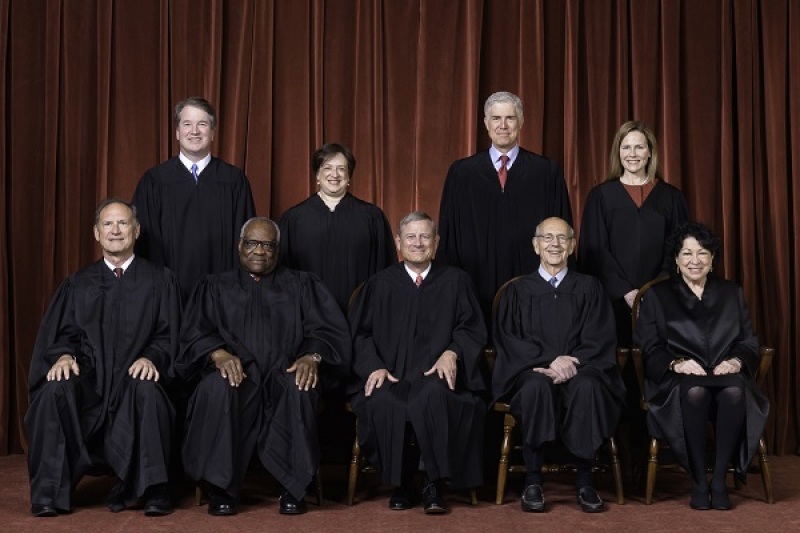
Just two months after allowing the Texas Heartbeat Act place a halt on abortions across the Lone Star state, the U.S. Surpreme Court heard arguments on two cases against the controversial pro-life law.
On September 1, when the new anti-abortion law took effect in Texas, the Supreme Court declined to block the law in a 5 to 4 decision. Now, following three hours of oral arguments on Monday, at least two of the justices who refused to block the law from being enforced, Brett Kavanaugh and Amy Coney Barrett, showed interest in allowing abortion providers to pursue their legal challenge against the law.
According to Reuters, conservative Supreme Court justices felt "skeptical" about allowing the Democratic administration of President Joe Biden pursue its challenge against the Texas abortion law. Back in September, the Biden administration's Department of Justice filed a lawsuit against Texas to block the Republican-backed law.
Both the abortion providers, who also filed a lawsuit, and the Biden administration claimed that the Texas abortion law violates a woman's constitutional right to access abortion services, which was established by the landmark Roe v. Wade cased back in 1973.
"There's a loophole that's been exploited here," Justice Kavanaugh said, sharing the sentiments of liberal Justice Elena Kagan, CNBC reported. Justice Kavanaugh questioned whether the Supreme Court should expand court precedent surrounding federal cases against state officials "to in essence, close that loophole."
Justice Barrett, on the other hand, asked if the constitutional questions presented by the Texas abortion law can ever be "fully aired" because of how the structure was built and its legislative text.
Those who defended the Texas abortion law argued that since it is not enforced by the state itself, as it empowers citizens to file cases against those who commit the abortions, they should not be the ones to defend the law in court. Jonathan Mitchell, who is believed to be the architect of the Texas law, said, "The state has passed a law that gives them the option to sue and then it has washed its hands of the matter."
Meanwhile, Justice Kagan was unhappy with the Texas abortion law, arguing against Texas Solicitor General Judd Stone that "some geniuses came up with a way to evade [that precedent, and] the even broader principle that states are not to nullify federal constitutional rights, and to say 'Oh, we've never seen this before so we can't do anything about it'...I guess I just don't understand the argument."
Conservative justices Clarence Thomas and Samuel Alito on the other hand, theorized whether any Texan would have standing to file a lawsuit under the Texas abortion law without having a direct injury. Solicitor General Stone reasoned that personal "outrage" should be enough reason to do so.
The Supreme Court justices also mulled over allowing the Biden administration to sue a state, with U.S. Solicitor Gen. Elizabeth Prelogar arguing that America "does not lightly invoke an authority like this to sue a state" but that the Texas abortion law was so "unprecedented, extraordinary, and extraordinarily dangerous for our constitutional structure" that they may likely allow such a case, the Los Angeles Times reported.





















